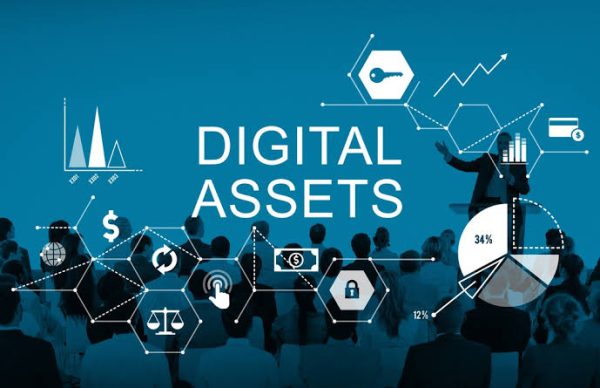
Digital Assets
Don’t undervalue or forget about the ownership of your digital assets when you think about getting a divorce and dividing the assets you acquired together.
Digital assets, such as downloaded music, credit card points, online music accounts, and frequent flyer miles, may be disregarded throughout the separation agreement negotiation process because they are intangible. However, they are valuable, and your divorce decree and separation agreement should take that into account when determining their fair distribution. Read more to know how important your digital assets are and you you can obtain during divorce.
What are Digital Assets?
A digital asset is anything that is kept on computers, cellphones, tablets, or distant servers in a digital or binary format. This covers an amazing variety of stuff, including social media posts, spreadsheets, and text files. It even includes Bitcoin.
Digital assets that have a quantifiable worth are what an experienced attorneys mean when they discuss how to divide them after a divorce.
The digital assets that you and your divorced spouse jointly or separately possess can include a variety of items, including:
1. Funds in a PayPal account or a comparable one
2. Credit card points, frequent flyer miles, and other rewards from loyalty programs
3. Websites that accept Bitcoin or other virtual currencies, such as e-commerce sites
4. Online auction and sales sites like eBay or Etsy
5. Digital downloads of films, TV series, or music
6. Software for computers
7. Media accounts that stream
family movies and pictures
8. Financial document digital copies
9. Digital replicas of historical records, such as family history or correspondence.
Division and Ownership of Digital Assets
A lot of the digital items you actually possess are easily shared and copied. This holds true for old records, papers, and family images and films. Even during a contentious divorce, a spouse can decide to exchange readily replicable files. We are occasionally asked to settle disputes over who will package and make copies, as well as how one spouse will be paid for the time they spend copying documents for the spouse who is less tech-savvy.
A lot of digital proerties that are bought are actually licensed, not owned, and depending on the terms of the licensing agreement, they may or may not be able to be legally duplicated or transferred. This includes software as well as digital copies of books, movies, and music. We would need to figure out how much these things were worth.
Netflix, Spotify, and other shared streaming services would need to be stopped or transferred to one spouse. On the other hand, some content might be deemed valuable, such as recordings on a cablevision VCR or playlists or watchlists.
Who Will Determine the Distribution of Your Digital Assets?
When separating digital items, there are many factors to take into account and many potential grounds of disagreement.
Skilled negotiators with experience in family law will make every effort to ensure that the final arrangement is fair. To divide your assets and create a separation agreement, you and your spouse can work with a trained mediator or another impartial third party (such a retired family law judge).
The conditions of your divorce are all outlined in your separation agreement. You can petition the court for a divorce after a year of living apart, at which point your settlement agreement becomes a legally enforceable decree.
The complete asset division and separation agreement would be brought before a judge for decision-making in the event that an equitable arrangement could not be reached. In this scenario, digital assets will be granted to one spouse in exchange for other equally valued assets going to the other spouse, and the judge would handle them just like any other marital property. Both spouses may or may not agree with the judge’s conclusions.
You must submit a claim for equitable distribution in your home county, such as Wake County District Court, in order to have a judge decide how your marital assets are distributed in court. Any disputed matters pertaining to the identification, categorization, appraisal, or allocation of assets would subsequently be resolved by a judge. There may be witnesses.
You may ask for a consent judgment if you and your spouse reach an understanding between the time you file your equitable distribution claim and the court date. The judge will approve your strategy if the court determines it to be equitable.
If you or your spouse disobeys the judge’s orders and the provisions of the separation agreement, which will eventually lead to your divorce, you may be found in contempt of court.
Frequently Asked Questions About Division Of Digital Assets During Divorce
1. How are digital assets divided during divorce?
Division of digital assets in divorce involves assessing their value and negotiating a fair distribution, similar to physical property.
2. What qualifies as a digital asset?
Digital assets include cryptocurrencies, online accounts, digital media, intellectual property, and any valuable data stored electronically.
3. How is cryptocurrency handled in divorce?
Cryptocurrency is treated as any other asset; its value is assessed, and equitable distribution is determined during divorce proceedings.
4. Are social media accounts considered digital assets?
Yes, social media accounts can be considered digital assets. Their value may be assessed, and ownership or access may be negotiated during divorce.
5. How can one protect their digital assets in anticipation of divorce?
Pre-nuptial or post-nuptial agreements can outline the division of digital assets. Regularly updating privacy settings and keeping records of ownership are also advisable.
6. What challenges might arise in dividing digital assets?
Valuation complexities, technological changes, and issues of access or control can pose challenges when dividing digital assets during divorce.

Leave a Reply